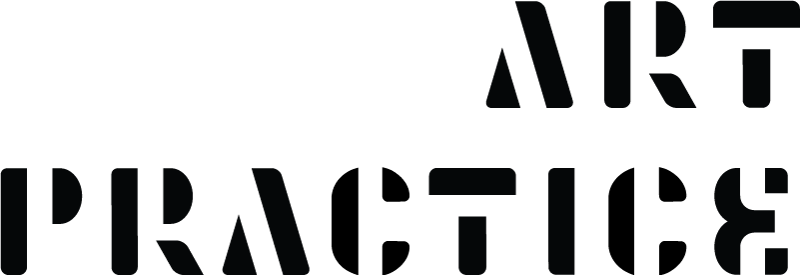The following list contains clickable links (shortcuts) to where you want to go.
PERSONNEL RESOURCES
Art Practice Chair
The Chair of the UC Berkeley Department of Art Practice is Professor Ronald Rael
Email: rrael@berkeley.edu
Three times per semester (first week, mid-semester, and last week of semester), the Chair hosts a Town Hall meeting, open to all students. Check the Undergraduate Student Newsletter for announcements of precise date and time.
Undergraduate Advisors
The Art Practice Undergraduate Student Services Advisor is Onisha Barham
Email: obarham@berkeley.edu
Office: Anthropology & Art Practice Building 345
The Art Practice Undergraduate Co-Directors are:
Professor Brody Reiman
Email: breiman@berkeley.edu
Professor Stephanie Syjuco
Email: ssyjuco@berkeley.edu
Office: Wurster Hall 176
Graduate Advisor
The Art Practice Graduate Co-Directors are:
Professor Anne Walsh
Email: agwalsh@berkeley.edu
Office: Anthropology & Art Practice Building 341
Professor Asma Kazmi
Email: akazmi@berkeley.edu
Office: Anthropology & Art Practice Building 316
Equity Officer
The Art Practice Equity Officer is Professor Asma Kazmi.
Email: akazmi@berkeley.edu
Office: Anthropology & Art Practice Building 316
The Equity Officer works as a resource for addressing equity and inclusion issues that affect the department’s cultural climate. They work with staff, faculty, and students to ensure that the department’s policies, practices, and procedures foster a friendly, fair, and professional environment. More info about UC’s Faculty Equity Officers here.
See also the Department of Art Practice Policy Page, managed by the Equity Officer.
Art Practice Student Collaborative
The Art Practice Student Collaborative (APSC) is an undergraduate student-led committee to identify, address, and discuss the needs of the student community, including concerns regarding support, communication, transparency, facilities, health, student labor, pedagogy and curriculum.
The APSC is tasked with holding the community accountable to continually support the creative, academic and personal success of historically marginalized community members (This includes but is not limited to students who are Black and Brown, QTBI+, parents, disabled, first generation, undocumented, re-entry, and transfers).
Community Engagement and Resource Sharing
The Art Practice Student Collaborative organizes Studio Nights, a weekly student-led event open to students of all majors. This communal event is for building community and connection within the art department. Studio Nights is a space for students and their friends to share a meal, create art in community, and voice concerns for the APSC to share with faculty and staff.
In the coming semesters, the APSC is excited to organize and create other student events and actions such as an orientation potluck, technical workshops, town halls, graduation celebrations, collective activism work, poster/zine-making, create an arts supply lending library, outreach/collaboration with other departments, performance events, social gatherings, and more.
Communication and Organization
The APSC remains in regular communication with the student body through weekly announcements in the Undergraduate Newsletter, organized by Professor Stephanie Syjuco. The APSC also attends monthly departmental meetings to relay undergraduate concerns, as well as departmental communications back to the undergraduate community. The APSC is tasked with outlining procedures for nominating/selecting future student representatives, and determining term commitments for each member. As needed, the APSC communicates with prospective and new students to the department.
Student Ombuds & Advocate
The Student Ombuds Office can be your first step, your last resort, or anything in between if you need assistance sorting through a campus-related conflict or concern. The Ombudsperson will fully listen to your concerns, discuss your options, and help you get information and perspective that will empower you to make informed decisions in determining your next steps.The office is strictly confidential (even in cases of SVSH) and is not a place of record or report. The only exception to this confidentiality is where there appears to be imminent risk of serious harm or danger. To explore this resource or to make an appointment, please call us at 510-642-5754.
The ASUC Student Advocate’s Office (SAO) — effectively the campus public defender — is an executive, non-partisan office of the student government at UC Berkeley. We offer representation, help, and advice to any student or student group involved in a dispute with the University. Our caseworkers have experience and knowledge about all sorts of problems, including conduct violations, grade disputes, enrollment issues, financial aid problems, establishment of residency, discrimination, and harassment. All assistance is free and confidential.
Other UC Resources
Dean of Students / Support Having trouble adjusting to life at Cal? The Dean of Students is here for you. Whether your problem is academic, personal, financial, or legal — or if you know of someone who is a concern — we’ll help you find the support you need.
Graduate Assembly The mission of the Graduate Assembly is to improve the lives of University of California, Berkeley graduate students and to foster a vibrant, inclusive graduate student community. The Graduate Assembly is the official representative body of the graduate and professional students at the University of California, Berkeley.
Restorative Justice Center The mission of the Restorative Justice Center is to create opportunities for people to connect on deeper levels by sharing stories, engaging in deep listening, and developing respectful relationships, and community-based strategies for responding to conflict and harm. When harm occurs, we offer processes for understanding impacts and needs, and taking accountability in ways that result in transformation and repair.
Student Technology Equity Program Support for students in need of hardware or wifi connectivity resources (free loaner laptop, Wi-Fi hotspot, or other peripherals (e.g. webcam, headphones, etc.). STEP is accepting applications on a rolling basis throughout the 2020-2021 academic year, while supplies last.
